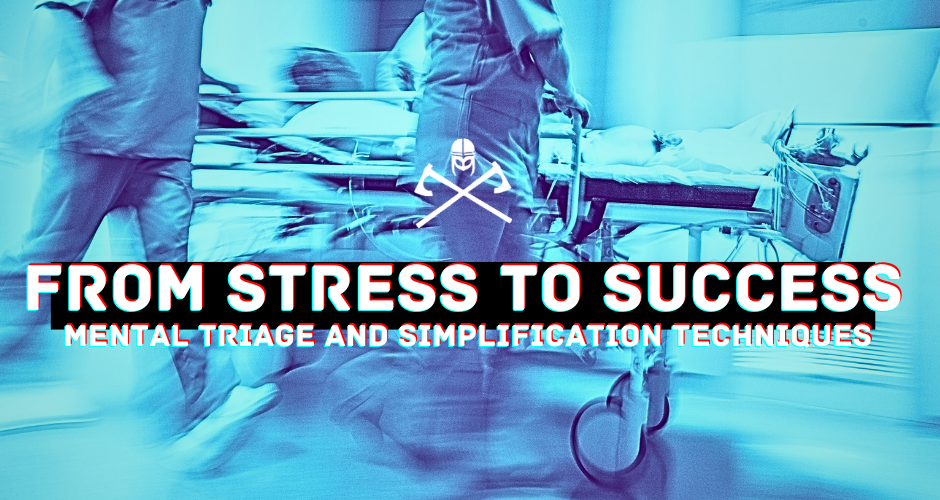
by Gene Crawford | May 20, 2024 | Podcast
We dive deep into the compelling themes of ‘The Courage to Be Disliked,’ a book that serves as a clarion call for authenticity in an age where societal judgment can be crippling. Join Heather and me as we embark on a thought-provoking journey through the philosophy of Alfred Adler and the life-changing potential that comes with embracing our true selves.
We discuss the impact of societal pressures, such as OCD and germophobia, and the importance of recognizing these as limitations that can, and should, be overcome. Through the lens of personal responsibility, we underscore the empowerment that comes from owning our choices and the direct influence they have on our happiness and health. The importance of work ethic is a standout theme in our discussion. By showing up consistently and dedicating ourselves to our endeavors, we inadvertently stand out in a world where the bar is often set low. We share anecdotes that reveal how a strong commitment can lead to unexpected opportunities and a sense of fulfillment that extends beyond personal achievement.
The conversation also delves into the cultural obsession with quick results, contrasting this with the profound satisfaction of mastering a craft through time and dedication. We stress the significance of community and how our individual contributions can lead to collective improvement.
We hope that our exploration of these themes will inspire you to pick up ‘The Courage to Be Disliked’ and join us on this journey of self-discovery and empowerment. It’s time to live courageously, authentically, and with a sense of purpose that transcends the opinions of others.
(more…)

by Gene Crawford | May 6, 2024 | Podcast
Are you ready to transform your days into a springboard for success all year long? Our latest podcast episode uncovers morning rituals that can boost productivity and self-improvement. We discuss a daily framework that begins with asking, “What good shall I do today?” and delve into a structured schedule that balances work, planning, and personal growth. Our conversation explores timeless wisdom, focusing on the importance of intentionality and how it can set the tone for a fulfilling day. We also examine a set of guiding virtues that promote continuous self-improvement and reflection.
To bridge the gap between traditional and modern approaches, we turn to contemporary thinkers like Arnold Schwarzenegger and Ryan Holiday, who offer insights into building a growth mindset and the power of community support. Our podcast discusses the role of positivity and ethical decision-making, emphasizing the importance of seeing the positive in challenges and maintaining a moral compass. We conclude with practical takeaways, encouraging listeners to begin each day with purpose and to structure their routines for success. Tune in to learn how to apply these practices to create mornings that lead to a life of excellence.
(more…)

by Gene Crawford | Apr 29, 2024 | Podcast
Success is often clouded by self-doubt and the fear of being exposed as an imposter. In this latest episode Greg and I discuss overcoming these fears through authenticity and vulnerability.
We share our experiences with imposter syndrome and discuss the impact of societal pressures and curated social media. We offer insights from our backgrounds in business, martial arts, real estate, providing strategies to help you fight self-doubt.
We examine the role of external validation and emphasize the importance of internal metrics, highlighting Gary Vaynerchuk’s and Dr. Sean Pastuch’s insights. We define imposter syndrome and its various types, using personal stories to illustrate our journey through self-acceptance.
One significant takeaway is the struggle with pricing our worth. We discuss how the tension between commercial success and artistic integrity can fuel imposter feelings, especially when it comes to pricing and negotiation. We stress the importance of valuing one’s work and charging what one is truly worth.
Remember, imposter syndrome doesn’t define you. It’s a shared experience, and by confronting it with honesty and courage, we can all emerge victorious.
(more…)

by Gene Crawford | Apr 22, 2024 | Podcast
Transform your never-ending ‘to-do’ list into a view of readiness with Dr. Daria Long’s expert guidance, as we explore practical strategies for achieving a state of preparedness. From the ER to your personal chaos, Dr. Long translates her frontline experience into actionable advice for managing life’s daily demands with finesse. We tackle the pitfalls of the ‘crazy busy’ badge of honor, advocating for a ‘ready mode’ outlook that prioritizes triage of tasks and simplicity in everyday life. By sharing techniques to step out of the whirlwind in your mind, we help you reframe stress as a manageable facet of a well-organized life.
In our continuing journey of self-improvement, we scrutinize the mental frameworks that dictate our actions and the results we achieve. Using personal anecdotes from my time as a martial arts coach, we expose how mindset and beliefs craft our reality, emphasizing the power of visualizing success and the necessity of confronting confirmation bias. This episode is an invitation to audit your belief systems, to dare to challenge the status quo of your limitations, and to take command of your own narrative. Join us as we break down barriers and foster a mindset of empowerment and relentless pursuit of personal growth.
(more…)

by Gene Crawford | Apr 15, 2024 | Podcast
We’ve all been there. That sinking feeling when someone issues a veiled insult disguised as a compliment or that exasperating moment when you’re interrupted mid-sentence. It’s the subtle sting of disrespect, and it permeates our daily interactions more than we’d like to admit. This episode kicks off with a candid acknowledgment of the impact disrespect has on relationships, both personal and professional. We discuss an insightful listener recommended article highlighting seven telltale signs of disrespect, including ghosting, habitual lateness, and the classic backhanded compliment. These behaviors, while seemingly trivial on the surface, can corrode the foundations of trust and undermine professional environments and personal bonds alike.
The episode also takes a humorous yet informative turn when addressing how to spot individuals who may not be as authentic as they appear. From the overly loud to the overcompensators, we’re given a rundown of the five subtle signs that someone might be “full of it.” This segment provides listeners with a critical lens through which to view interactions and reminds us of the importance of sincerity and humility.
As we part ways until the next episode, let’s take these lessons to heart. Let’s aim to give compliments without caveats, show up on time as a sign of respect, and truly engage in the conversations we have. Because at the end of the day, the language of respect is universal, and it’s time we all become fluent.
(more…)





